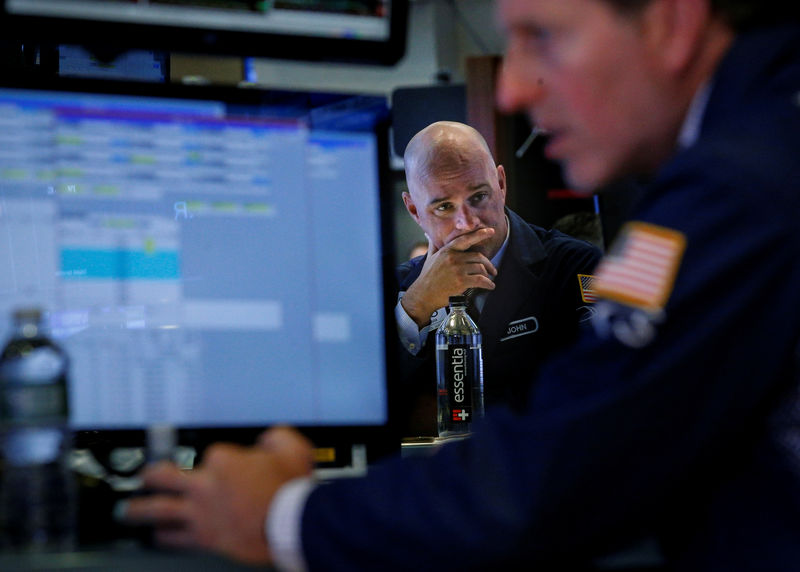By David Randall
NEW YORK (Reuters) - The escalating trade war between the United States and China may prompt U.S. companies to shift money they had earmarked for capital expenditures into stock buybacks instead, pushing record levels of corporate share repurchases even higher.
Such a move away from capital reinvestment would also undercut one goal of the Trump administration's signature $1.5-trillion tax cut, which supporters said was intended to unleash a wave of new investments in factories and workers at home.
Instead, fund managers say, the reality of tit-for-tat U.S. and Chinese tariffs on more than $34 billion worth of goods - and the U.S. threat to slap additional tariffs on more than $200 billion worth of Chinese products - may undermine business confidence, freezing corporate investment plans.
"The actual economic impact of the tariffs is pretty small. But I feel fairly confident that if we look at corporate behavior there will be some delay on making capital expenditures and investments due to lack of certainty in the market" about the costs of importing and exporting goods, said Putri Pascualy, portfolio manager and senior credit strategist at Pacific Alternative Asset Management Co.
As a result, she said, companies flush with cash from the tax cut will spend their windfalls on either buybacks or acquisitions, both of which should push earnings per share higher either through revenue growth or reducing the number of available shares. Corporations that announce that they will start buying back their own shares also tend to see a boost in their share price by introducing another dedicated buyer into the market.
This year, however, companies are seeing little pop. The S&P 500 Buyback Index, which measures the 100 companies in the index with the highest buyback ratios, is up 3.2 percent since the start of January, slightly behind the 3.9 percent gain in the broad market.
"Corporates are aware that they're not seeing their stock price go up to the same amount for their buybacks as they did three years ago, and they could respond by saying we should stop doing it, or we're not getting as much bang for the buck so we will do more. I think they will do the latter, especially because they have the money" from the tax cut, Pascualy said.
Companies in the benchmark S&P 500 announced a record $436.6 billion in buybacks in the second quarter, nearly doubling the previous record of $242.1 billion announced during the quarter before, according to TrimTabs.
Apple Inc (NASDAQ:AAPL)
SLOWING CAPEX
There are already signs that capital expenditures are slowing. Capital investment by companies in the S&P 500 is expected to grow 10.2 percent in the third quarter compared with the same time last year, compared with the 18.8-percent year-over-year jump in capital spending in the second quarter, according to Thomson Reuters data. Capital expenditures in the fourth quarter, meanwhile, are expected to grow just 1.7 percent from the year before.
Among small-cap companies, which saw the greatest proportional benefit from the tax cut passed in December, capital spending is expected to grow by less than double digits in the second and third quarters and post a 11.7-percent decline in the fourth quarter, according to Thomson Reuters I/B/E/S data.
"It's a confidence issue. Tariffs cut into business confidence because you don't know where it's going and you don't know what the other guy is going to do," said David Ellison, a portfolio manager at Hennessy Funds.
Capital expenditures will likely continue to decline and buybacks will increase even if tensions between the United States and its trading partners cool off, said Brian Levitt, senior investment strategist at OppenheimerFunds.
"I'm of the mind that expectations for business investment because of tax cuts were overstated," he said. "This economic cycle is already quite long and businesses have been flush with cash for some time."
Instead, companies will watch the currency market for signs that trade tariffs are pushing the dollar higher, eating into earnings and profitability, he said.

"It doesn't necessarily take that much to change corporate behavior," Levitt said.